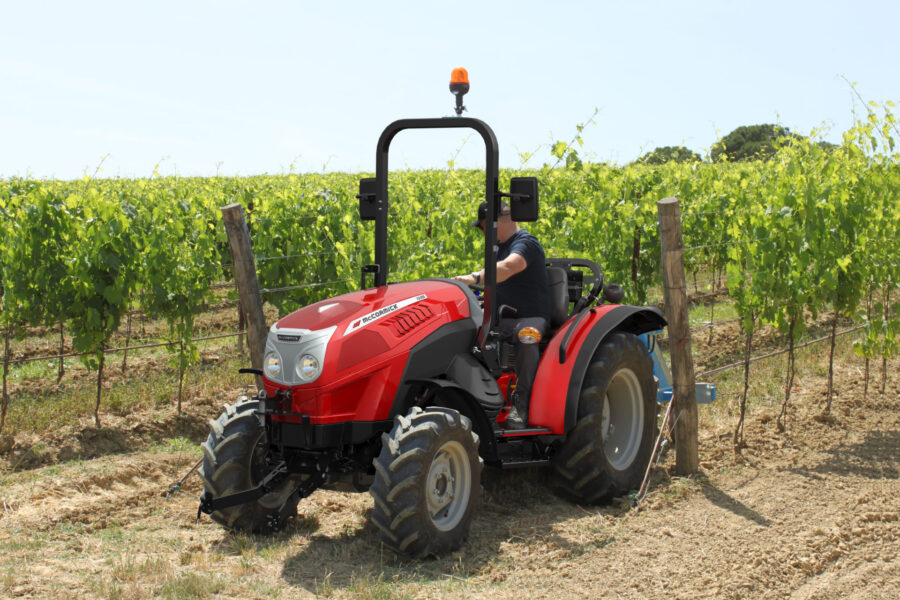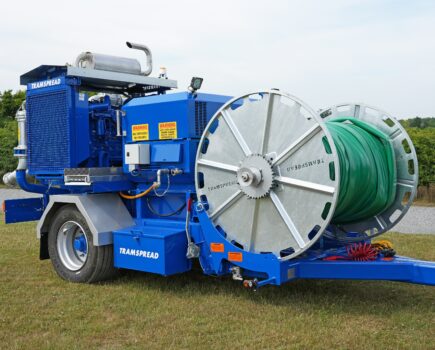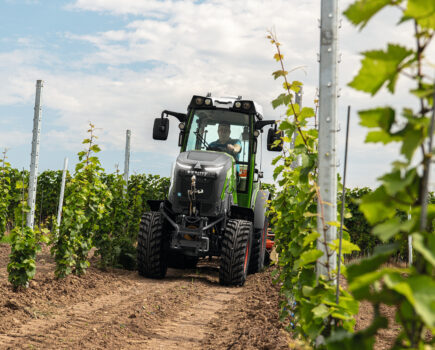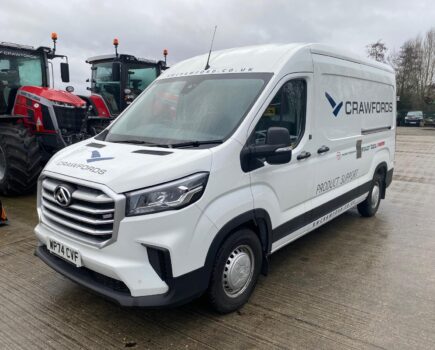The latest addition launched by McCormick is called X2, and is the new compact range boasting an extensive revolution of the engine, which passes from the Yanmar Tier 3 of the previous series to the Kohler Stage V emission engine.
The two models in the range, X2.055 and X2.060, thanks to the 1.9-litre, 3-cylinder, turbo aftercooled engines, achieve a maximum output of 49 and 57 horsepower (ISO) respectively, with maximum torques of 180 and 200 Nm already available at 1200 rpm.
The transition to the Stage V emission engine did not require an increase in the height of the bonnet, as one would assume, thanks to the design skills of Argo Tractors in research and development, by adopting an exhaust gas treatment system at the side of the bonnet. This ensures the visibility of the operator remains optimal, providing easy handling and comfort to the driver and an extremely flexible use of the tractor, which is suitable both for specialised farming applications and municipality works, such as grounds maintenance of public parks or, for example, that of golf courses.
The X2 is also characterised by a renewed family feeling in line with McCormick style, for example in the bonnet that includes specific side grilles that bring advantages in terms of cooling as well as improvement in design.
An important new feature is the availability of the Engine Memo Switch that allows you to save engine rpms and to quickly retrieve them with a practical switch on the right-hand console.
The X2 range is available in two different configurations: Standard configuration, available for the platform or cab versions, and GE (Ground Effect), only for the platform version which, with a “lowered” set-up achieved thanks to the use of dedicated rear reduction gears and a front axle, which further reduces the overall height from the ground of the bonnet and mudguards, making it an excellent choice for working under polytunnels.
The FOPS cab stands apart for its design, its comfort, thanks to the air-conditioning, flip-up front window and radio, and its noise and vibration insulation.
The mechanical power shuttle transmission is available in 12/12 or 16/16 versions if equipped with a creeper unit, with a minimum speed of 220m/h.
The fuel tank has a 40-litre capacity, while the hydraulic flow rate is increased to 35 litres/minute for the rear lift and it also has a dedicated 20-litre/minute steering pump.
The category one three-point hitch rear lift system can lift up to 1200 kg and the front lift system, optional with or without a 1,000 rpm PTO, up to 400kg. There are 3 additional spool valves available (2 standard valves and 1 optional floating valve). The controls are installed on the new console.
The rear mechanical PTO is available in 2 different speeds: 540 and 540E, plus the synchronised forward speed. The dual traction front axle has an electro-hydraulic engaging “Hydralock” differential lock in both the STD and GE versions.
The new on-board controls are now digital to guarantee a technological upgrade that provides information such as diagnostics and signals, maintenance intervals, data on the work carried out and fuel consumption.
The tractor weighs just 1600kg for the platform version and has a maximum permissible mass of 3050kg, while the wheelbase of just 1790 mm and the minimum width of 1260mm with rear tyres available in two versions, 20” and 24”, which allow the GE version to maintain bonnet heights from the ground of 1131mm and 1206mm respectively (on the Standard version these measurements become 1230mm and 1301mm).
The customer also gets the opportunity to add the extended warranty option (up to 48 months or 5,000 hours) to the package, as well as the scheduled maintenance option, which can be tailored to meet the purchaser’s needs.
The McCormick X2 range can be equipped with the advanced “McCormick Fleet Management” telematics monitoring system, designed to monitor the efficiency of the work site in terms of fuel consumption, working hours and scheduled maintenance. The system operates through a dedicated portal that allows the owner to maximise the activity of the tractors and monitor their operating costs.





